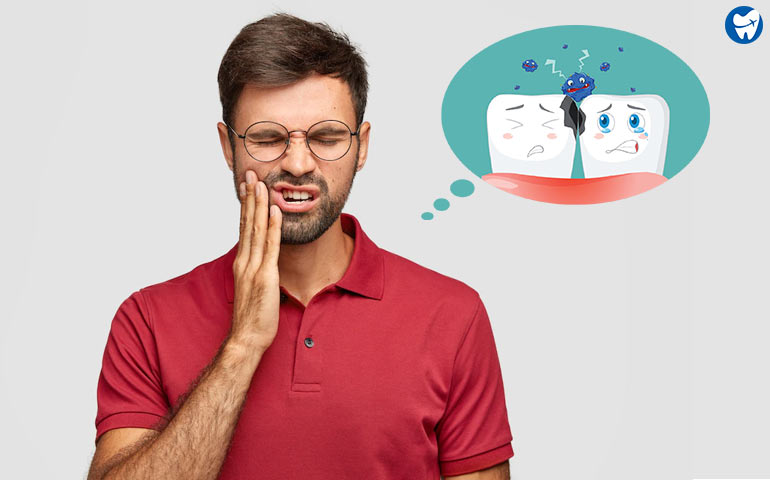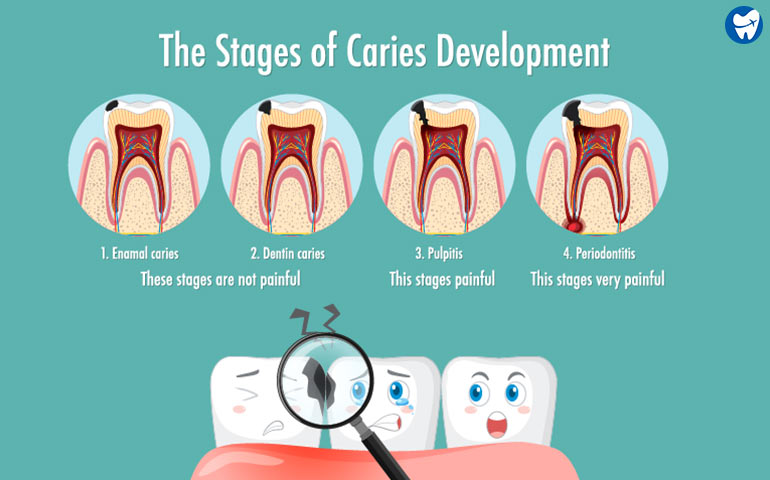Your teeth are an important part of your look. They also help you to chew food & speak. However, they are highly prone to caries. Read to know more.
Dental Caries Is the Second Most Common Disease After the Flu.
Dental caries, aka dental cavities, is the most common non-communicable disease after the common flu.
It might sound odd, but it’s entirely true! Scroll down for more information.
What Causes Dental Caries?
Dental caries is a decay itself. So, if left untreated, they can lead to a severe infection. [1]
This disease is common in infants and teenagers. However, older people can also get affected. [2]
Now, you must be wondering, what causes dental caries? Your mouth is home to a lot of bacteria.
When you eat carbs, these bacteria act on them and produce acids.
This acid in plaque attacks your tooth’s enamel which causes small holes in your teeth. As the destruction continues, you become prone to tooth decay.
Moreover, certain foods such as sugar and starch increase the risk of getting dental caries. [3]
Stages of Dental Caries
How To Prevent Dental Caries?
On the other hand, you can also take care of your teeth and prevent dental caries.
Good oral hygiene and dental care can keep dental cavities between teeth at bay.
Research shows that brushing your teeth with fluoride toothpaste is an effective way to prevent cavity in teeth. [4]
Your dentist may also suggest rinsing your mouth with fluoride if you are at a high risk of developing caries.
Apart from that, it is advised that you eat tooth-healthy food such as fresh fruits and vegetables and unsweetened beverages. [5]
Moreover, it would be best to visit your dentist for regular checkups to keep your oral health in top spirits.
As per WHO, this disease takes up 5-10% of the healthcare budget in first-world countries. [6]
Dental Treatment for Caries
You must also know that dental caries can be treated with certain dental treatments.
If the lesions or the openings of the holes are small then non-invasive methods can help treat the disease.
This includes, but is not limited to, remineralization, biofilm removal or sealing.
If the enamel has been destroyed, your dentist may suggest minimally invasive treatments. This involves dental fillings and tooth reconstruction.
After your treatment, you should adhere to good oral hygiene tips that are stated above to maintain healthy teeth. [7]
FAQ
Early stages of tooth decay usually has no symptoms. As it progresses, it can cause [8]
- Cavity
- Toothache
- Sensitivity in teeth
- Stains on teeth surface
- Abscess (in later stages)
Final Word
Have you seen your dentist in the last six months? If not, then schedule an appointment today.
With Dentavacation, you can access affordable dental care abroad and save around 80% of the dental costs in your home country!



